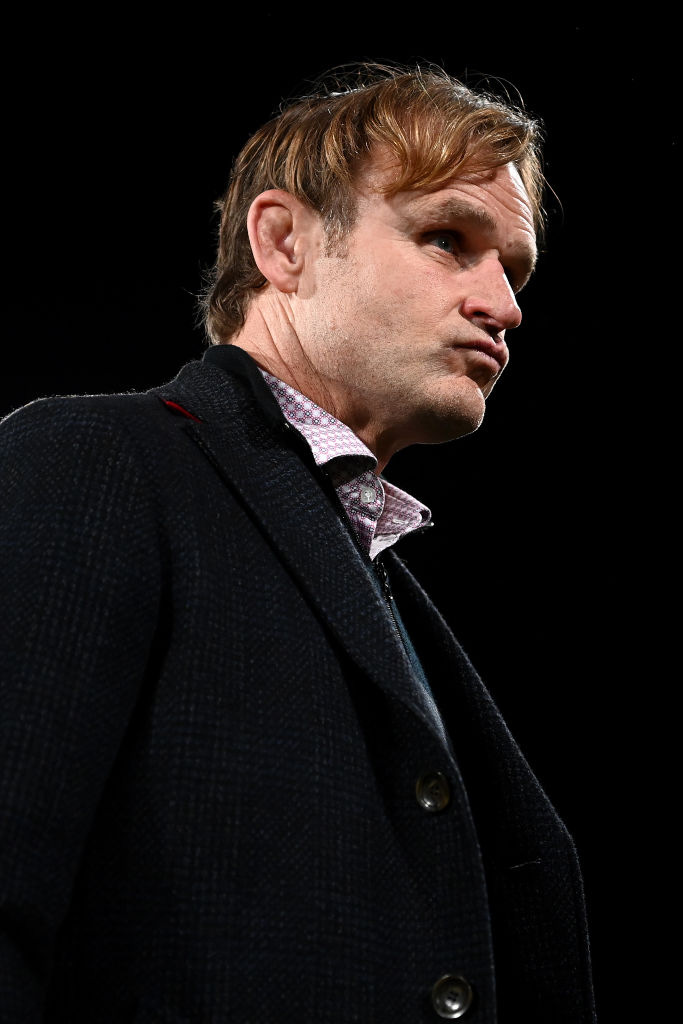Bring on the Bled
Schmidt v Razor is a coaching clash worth waiting for, the eligibility question, hockey's tumbling fortunes, Finn's stock rising.
With the appointment of Joe Schmidt to the Wallabies head coaching role, it might be time to get genuinely excited about the Bledisloe Cup again.
Schmidt’s legacy with the All Blacks is short and complicated.
It is almost certain it was not coincidental that tangible improvements began to show themselves when he became more formally involved in a coaching capacity with the team. However, with the benefit of hindsight, he had the opportunity to change the course of that team’s history and decided to stay with the status quo - and as unlucky as it might have been, ultimately the status quo came second.
It was an invidious position for Schmidt to be placed in, but if his meeting with Scott Robertson had gone differently in the midst of the All Blacks losing more tests than they were winning at the start of 2022, who knows what magic or otherwise could have been made.
While the exact details of that meeting have never been divulged and are unlikely to, there was always the sense that Schmidt and Robertson had no desire to be lumbered with each other. It would have been a desperate marriage of convenience, but as we’ve seen plenty of times in politics, these marriages can be used to win things.
Instead they’ll go head to head.
I was fascinated by this piece on Schmidt in The Roar because it offered up both insight while frequently lurching into the most gratuitous type of cereal-box philosophy.
The thoughts come from organisational psychology expert Catherine Kavanagh, who according to The Roar, “has written on career transitions in rugby, who happens to be an erudite Leinster and Ireland supporter with a lower deck upfront view of Schmidt’s handiwork for a decade in Dublin”.
Make of the following what you will, but the observations were nothing if not interesting. (Her words are in italics, my annotations are in standard text.)
He’ll get buy-in because he is genuine, he is a leadership guru, and is a cult-like figure. He makes systems function.
A guru? A cult-like figure? Wasn’t that what Eddie Jones was meant to be. This doesn’t actually sound like Schmidt, but I’m no expert.
His style is exhausting. He is not an innovator. He will recreate what he has already created before, but he will not deviate or innovate. When it goes bad, as it did in the 2019 Six Nations, he may not be able to change course. A didactic power man channels one way; it’s not even binary. He will not tolerate dissent.
You could look at this in myriad ways. Australians are bred for dissent. It is baked into their DNA and many of their most successful sporting figures - think Ian Chappell, Shane Warne, Andrew Johns and countless others - have thrived on tweaking authority. On the other hand, many of their most successful coaches have been no-nonsense strongmen types: Jack Gibson, Don Talbot, Wayne Bennett and Craig Bellamy to name just a few.
He’d like to fix this. He’s not cheap, but I don’t think he is motivated by money, primarily. He will want to show Razor that the old master is still on top. The teacher and the student.
And this is the crux. This move, if not guided by money, is motivated by something else. If it is personal, bring it on, because the grand old Bledisloe needs something to move the needle.
Keep reading with a 7-day free trial
Subscribe to The Bounce to keep reading this post and get 7 days of free access to the full post archives.





